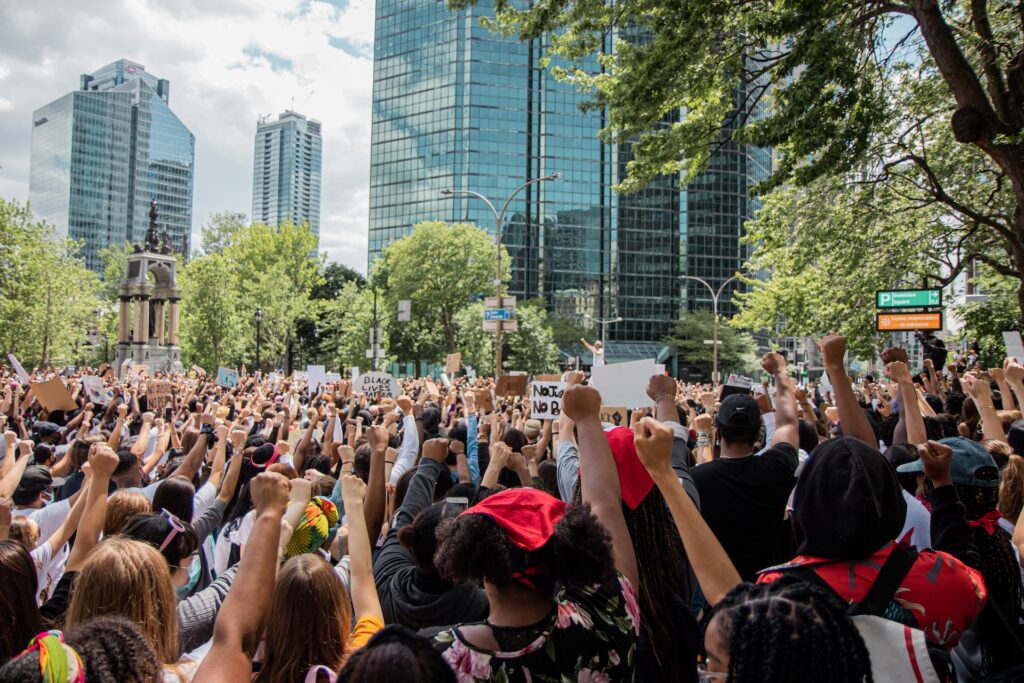During the digital era, where transformation touches every sphere of our lives, politics appears stuck in 19th century practices. Despite the technology at hand, representative democracy maintains an almost symbolic citizen participation.
Why does politics resist the digital age?
By: Gabriel E. Levy B.
www.andinalink.com
The digital revolution has undeniably reshaped our daily lives. We’ve witnessed a reinvention of nearly all human activities, driven by technological innovation and global connectivity. Entertainment has evolved beyond traditional TV channels, immersing itself in platforms like Netflix, where we choose what, when, and how to watch. In healthcare, telemedicine brings diagnosis and treatment to remote places, while in education, online learning democratizes access to information. Traditional classrooms now compete with interactive platforms and online courses. As for work, remote employment breaks down geographical barriers and redefines workspaces. Moreover, commerce is reinvented with the ease of e-commerce and cryptocurrency transactions, challenging traditional financial systems. In culture, we’re no longer solely reliant on physical libraries or art galleries; we have virtual museums, e-books, and music streaming platforms. Social media, on its part, has reshaped our interactions, fostering virtual communities that cross borders.
The Digital Resistance of Politics
However, one domain seems to resist this transformation: politics. Paradoxically, in a world where almost everything is digitized, politics remains rooted in practices reminiscent of the 19th century. Representative democracies still function based on electing candidates, where citizen participation remains largely symbolic.
Why, when we possess the technology for any government decision to be put to public consultation and approval, do we cling to outdated models?
Santiago Siri, founder of Democracy OS, argues that technology provides tools for a more participative democracy, but inertia and the status quo prevail. Politics seems to be one of the last bastions resisting the digital age[1].
The dilemma lies with the gatekeepers of these bastions: the political elites and vested interests threatened by a more informed and participative citizenry. They fear the decentralization of power and true democratization.
Additionally, in many contexts, politics operates as a well-oiled machine resistant to changes that might disturb its flow.
Prevailing sentiments include fear of change, the comfort of established structures, and a reluctance to relinquish power.
It’s a game of power and interests where technology, despite its revolutionary potential, is perceived more as a threat than a tool for progress.
The Lobbying of Major Corporations
The influence of major corporations in global politics is undeniable. These multinationals, armed with vast resources, exert tremendous sway over national and international legislation through what is known as “lobbying.” Companies like Google, Amazon, Facebook, and ExxonMobil have spent millions on lobbying efforts to shape policies in their favor.
For instance, according to the Center for Responsive Politics, in 2020 alone, Amazon invested over 18 million dollars in U.S. lobbying[2].
Their goal: to influence matters ranging from data privacy to tax regulations. The pharmaceutical industry, with giants like Pfizer and Johnson & Johnson, spends similar amounts to influence health policies and regulations. Such lobbying actions allow these entities to shape legislations in ways that favor their interests and maximize their profits. If we could implement a true participative democracy, where each individual had a direct vote on all government decisions, the power of these multinationals would be diluted. This is precisely why many corporations support and endorse the current representative democracy system. In this setup, their concentrated influence and financial resources allow them to exert effective and direct pressure on a select group of representatives, rather than having to persuade the broad and diverse populace.
Youth’s Disconnection from Current Politics
New generations, born and raised in the digital era, clash head-on with traditional 19th-century politics. They’re accustomed to a world where they can voice opinions and engage in real-time debates across platforms. For them, the idea of a representative speaking on their behalf feels outdated and foreign, a stark contrast to their parents’ era where major media outlets dominated discourse and the average citizen played a passive listening role.
Social media has given the youth a voice and a platform. They’re no longer mere spectators; they’re active participants demanding direct representation. In this context, traditional representative politics feels archaic. Why need intermediaries when they possess the ability to communicate and express themselves on a global scale? This disconnect has led to growing apathy and disillusionment towards conventional politics. In response, many young people gravitate towards radical political figures, from either the right or the left. They seek a disruption, a shake-up to challenge and potentially topple established structures. This thirst for change and dissatisfaction is evident in the rise and success of candidates like Javier Milei in Argentina, Bolsonaro in Brazil, or even Petro in Colombia. Milei, with his controversial style and libertarian rhetoric, symbolizes a break from the norm, attracting youths who see in him a figure challenging the status quo. Even if some aspects of his discourse lack coherence, he resonates with a populace demanding political reform.
In conclusion, the digital age has revolutionized many facets of our society, but politics, anchored in 19th-century practices, remains reluctant to evolve. Large corporations wield significant lobbying power, reinforcing the representative democracy that benefits them. The new generations, empowered and vocal on digital platforms, demand a change. They feel alienated by a system that doesn’t represent them and are drawn to radical figures in search of a break. Traditional politics must renew itself or face growing discontent. It is imperative to reconnect with a citizenry that no longer wants to be merely an observer, but an active protagonist.
[1] Siri, S. (2015). Hacking the citizenry? TEDxRiodelaPlata.
[2] Amazon: Lobbying Expenditures 2020″. OpenSecrets. Center for Responsive Politics.

